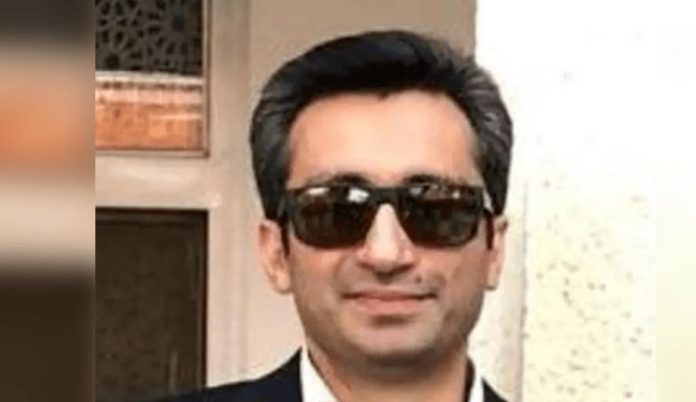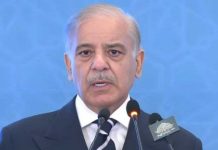Barrister Shehzad Ata Elahi on Saturday clarified that it was “absolutely incorrect” that he was asked to resign as Attorney-General for Pakistan a day after the media reported he had quit the top law office.
In a clarification sent to Dawn.com, Barrister Elahi confirmed that he had resigned, but rejected reports that he was asked to resign.
The timing of his resignation — just a little over a month after he was appointed — is significant as it comes ahead of a looming legal battle on the delayed elections in Punjab in the Supreme Court, when it is eventually taken up by the PTI.
Soon after reports of Elahi’s departure made the rounds yesterday, Prime Minister Shehbaz Sharif went into a huddle with legal experts to discuss their strategy on the delayed elections in Punjab. The meeting, which was held in Model Town, was attended by federal Law Minister Azam Nazeer Tarar, PM’s special assistants Attaullah Tarar and Malik Ahmad Khan. Elahi was conspicious in his absence.
Elahi, sharing a copy of his resignation, told Dawn.com that he signed his resignation on Friday March 24th, which he “was sending to the President on the same day”.
He added: “It is absolutely incorrect that I was asked to resign. In fact when I communicated my intention to resign to senior members of the Government I was requested to defer sending the resignation to the President and at their request I handed the original resignation over to a senior minister. The government may send it to the President at their convenience.”
He said that “unfortunately some facts were selectively leaked in media yesterday” and while he avoided engaging with the numerous reporters and media channels who contacted him repeatedly, a “distorted narrative is being created which is why I am now constrained to send this clarification”.
Sources claimed to Dawn that the reason behind his sudden resignation was that the government did not have a “comfortable correlation” with the AGP and considered him someone who had been enforced upon them.
According to sources, the March 22 notification of ECP postponing the Punjab Assembly polls made the highest office the most uncomfortable seat since Elahi as AGP had to defend executive’s decisions before the judiciary.
“The PM’s huddle fully supported the ECP’s decision and resolved to hold the general elections of all assemblies simultaneously,” a PML-N source told Dawn.
The meeting discussed the government’s strategy to defend the ECP’s decision and its inability to hold the polls in Punjab and Khyber Pakhtunkhwa during the current circumstances.
“The strongest argument that the government believes it has is that holding general elections separately may cause a lot of problems for all concerned and would lead to another crisis. The apex court may be requested to give a solution by taking all stakeholders on board,” the source said.
The PTI has already announced approaching the Supreme Court against the “illegal decision” that the ECP has made at the behest of the government and the powers that be.
Elahi’s path to AGP office
After the resignation of then AGP Ashtar Ausaf Ali in October and the “disinterest” shown by Mansoor Usman Awan, Elahi was appointed as the country’s top law officer on Feb 2.
Barrister Elahi, grandson of former president Fazal Illahi Chaudhry, enjoyed good reputation for his hard work, integrity and understanding of legal issues. He belongs to the famous law firm Cornelius Lane and Mufti of which renowned lawyer Hamid Khan and Salman Aslam Butt were partners.
Earlier, the government had picked Awan, also from Lahore, but he expressed his inability to accept the job in a letter to Prime Minister Shahbaz Sharif on Jan 19 due to the government’s failure to issue the notification despite his nomination being approved by President Dr Arif Alvi on Dec 23.
It is believed that Prime Minister Sharif has called a meeting to consider a replacement of Elahi and name of Awan has started doing the rounds again.
Soon after his appointment, AGP Elahi created quite a stir when he on Feb 13 wrote to Law Minister Azam Nazeer Tarar, denying if Chief Justice of Pakistan Umar Ata Bandial had made adverse remarks about the honesty of the country’s prime ministers during the hearing in the NAB amendment case on Feb 9.
“I (AGP) was personally present in the court during these proceedings and could confirm that no such observation was made,” Elahi stated in a two-page letter to the law minister, which was issued to the media.
The letter came against the backdrop of Senate proceedings when one of the members, Irfanul Haque Siddiqui of PML-N, in his speech on the floor of the house had said that the top judge had no right to declare prime ministers — from Liaquat Ali Khan to Imran Khan — dishonest.

















